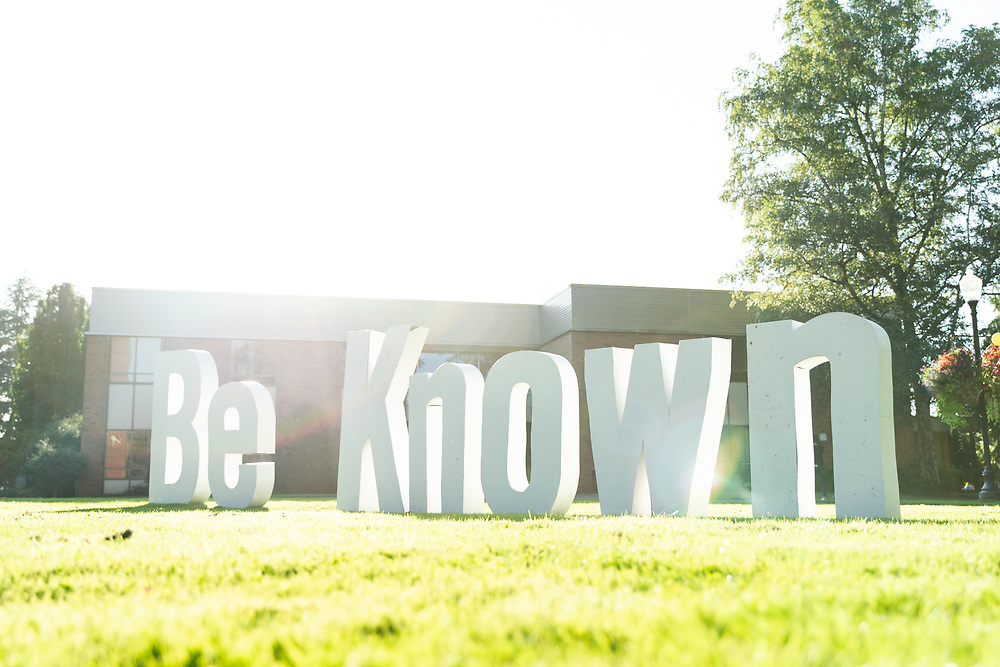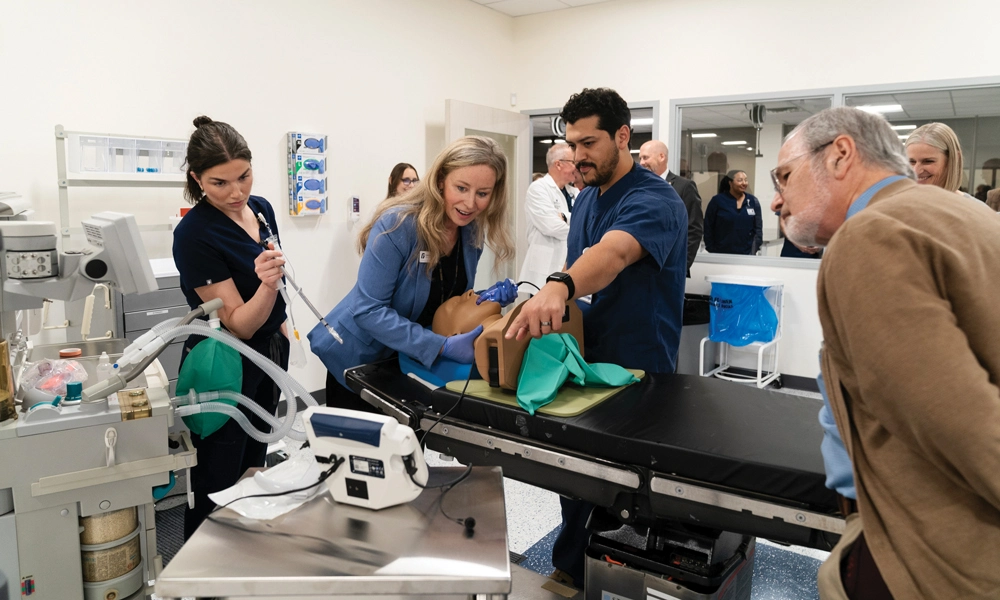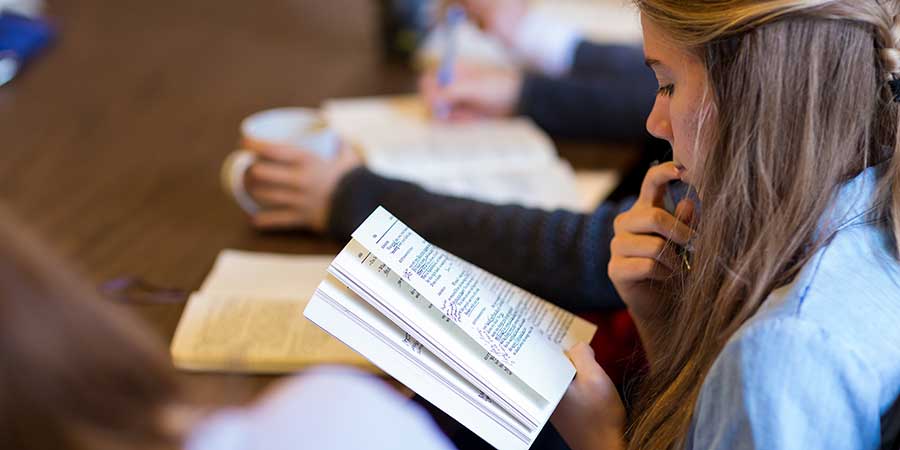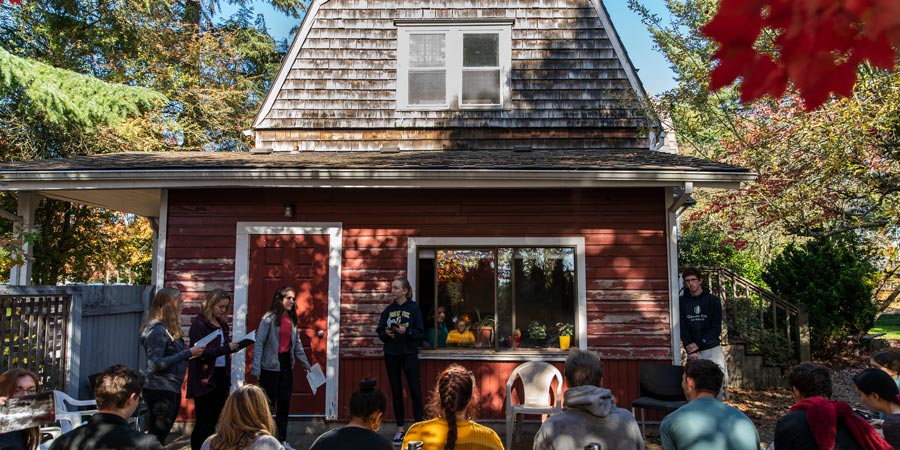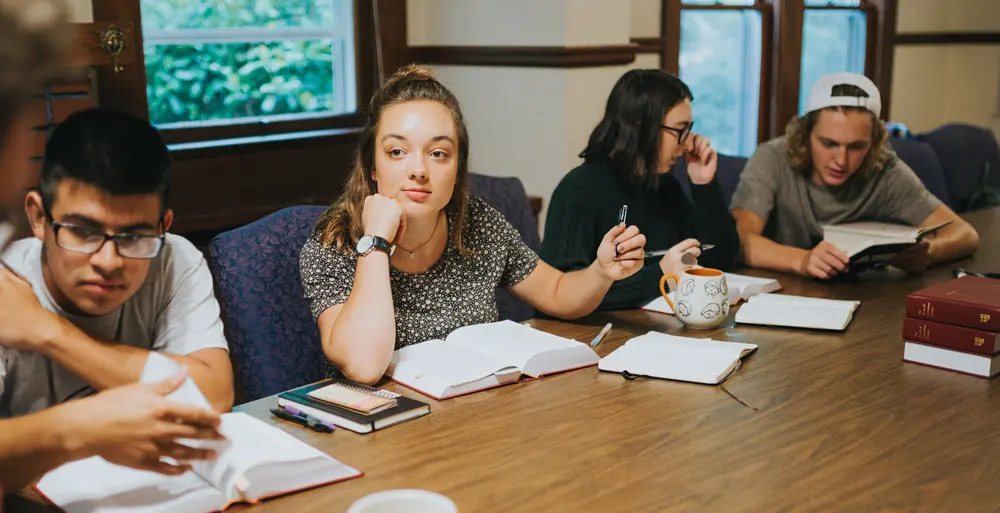
The Great Books and Homeschooling: Literature-Based Homeschool Curriculum for High Schoolers
by Madeleine Teel, Honors Program Admissions Specialist
What is literature-based homeschooling?
Literature-based homeschooling is exactly what it sounds like: an educational model that is primarily structured around reading. Great books homeschoolers take math and science, but their education is primarily centered around a canon of literature that spans a wide range of disciplines and time periods.
Homeschoolers educated through the great books are taught to interact with the primary sources that have shaped civilization instead of relying on secondary texts. As a result, students develop their own cognitive thinking skills by interacting directly with great books without the mediation of a commentator.
As C.S. Lewis observed, “The simplest student will be able to understand, if not all, yet a very great deal of what Plato said; but hardly anyone can understand some modern books on Platonism.” Instead of reading about Freud and his impact on modern psychology, students actually read Freud, alongside Dante, Plato and Jane Austen. Ultimately, exposure to a wide range of literature provides the student with a comprehensive overview of the history of human thought.
There are a number of great books homeschool curricula to choose from: Classical Conversations, Tapestry of Grace and Veritas Press are just a few used to educate homeschooled students around the country.
What are “great books”?
Great books are works that have been generally recognized for their impact on the development of human thought and civilization. They’re written by authors who have defined what it means to be human in the past, and continue to impact how we understand and interact with each other in the present.
Terms like “personal odyssey,” “Freudian slip,” “Faustian” or “quixotic” crop up in news articles, while expressions such as “abandon hope all ye who enter here” and his or her “white whale” make their appearances in pop culture. These references and others like them are taken from great books. In some ways these works have established the cognitive infrastructure that the modern world runs on.
There is no definitive great books canon, although there are certain works that are almost always included, such as those by Plato and Descartes. The George Fox Honors Program’s great books list is a fairly standard representation of a great books list from a Western context.
What are some great books that are particularly “great” for high schoolers?
Homer, The Odyssey: The travels of Odysseus as he struggles to return home hit on many important themes, such as family, loyalty and duty – and it contains some of the best monsters in Greek mythology.
Plato, Timaeus: Plato’s account of the universe and the inherent purpose that is apparent through its beauty and structure raises questions about piety and purpose.
Augustine, The Confessions: This is Augustine’s autobiographical account of his faith journey, which details the struggles of his youth and his eventual conversion to Christianity. It contains some beautiful theological reflections on the nature of God and his love for us.
Beowulf: The story of the hero Beowulf and his conflict with several monsters is the oldest English epic poem. It touches on themes of courage, self-sacrifice and the duty of leaders.
Julian of Norwich, Revelations of Divine Love: Julian’s revelations are widely considered one of the most important medieval documentations of religious experience. As a Christian mystic, her reflections on the beauty and love of God are unparalleled to this day.
Dante Alighieri, The Divine Comedy: Dante’s epic poem is widely regarded as one of the greatest works of world literature. It offers both beautiful poetry, insightful political commentary, and a journey from darkness into the eternal light of God.
Blaise Pascal, Pensées: Pascal’s collection of thoughts includes his famous wager, which is still relevant to Christian apologetics. The fragmented style of writing makes the work accessible and profound through the depth of thought Pascal is able to convey through a few lines.
William Shakespeare, Hamlet: The prince of Denmark and his famous dilemma “to be or not to be” raises questions about the nature of tragedy, adolescence and family responsibility.
Herman Melville, Moby Dick: The story of Captain Ahab and his obsessive pursuit of the great white whale offers beautiful prose alongside questions about the nature of humanity and the purpose of life.
Mary Shelley, Frankenstein: Mary Shelley managed to invent the Gothic novel at the age of 19, and her novel explores questions about the responsibility of a creator to his creature and the limits of science and knowledge.
Jane Austen, Pride and Prejudice: Austen’s most famous novel examines dangers of pride and prejudice, alongside an insightful sketch of familial life in the 1800s.
Fyodor Dostoevsky, The Brothers Karamazov: Dostoevsky’s greatest work follows the Karamazov brothers as they struggle with different vices and questions about the existence and goodness of God. Ivan Karamazov offers one of the most compelling presentations of the problem of evil, which is subtly responded to through the life of the young monk Alyosha Karamazov.
Virginia Woolf, A Room of One’s Own: Woolf reflects on the importance of creative spaces for women – both physical spaces and mental spaces – free from the responsibility of family and household chores.
Flannery O’Connor, Short Stories: O’Connor’s deep Catholic faith comes through in surprising ways throughout her American gothic short story collections.
How can parents maximize the value of using a literature-based homeschool curriculum?
Parents have an important role to play by reading the great texts alongside their students into high school. For large homeschool families, there can be a temptation to allow older children to read texts alone during high school, while the educational focus is centered on the younger children.
However, if one parent is able to read the texts alongside their student, there is an opportunity for rich discussion. Active dialogue can help the student internalize more of the contents of the text and prompt him or her to ask deeper questions.
Outside of discussion within the family, homeschool co-op groups such as Classical Conversations offer the opportunity to conduct Socratic dialogues on great texts, developing students' discussion and disagreement abilities – skills that are invaluable in college and beyond.
For Christian homeschooling families, should students read books that disagree with Christianity? If so, when?
Christian great books-based homeschool curriculums are intentionally structured to encourage students to pursue the truth. This dedication to truth is deeply inspired by Christ’s words in the Gospel of John: “I am the way, and the truth, and the life. No one comes to the father except through me” (John 14:6 ESV).
While there are many great books written by Christians, a great books education would be incomplete if it only focused on Christian writers. It’s difficult to read St. Thomas Aquinas without a passing knowledge of Aristotle, and Plato is equally important to understanding St. Augustine.
During elementary and middle school, Christian homeschooled students should be encouraged to engage with a wide variety of literature that encourages the development of moral character and virtue, shaping their desire to pursue truth. All of these qualities can be found in both Christian texts and the works of moral philosophers.
However, beginning in high school, students should begin to read texts that disagree with Christianity for several reasons.
First, the transition from high school to college is often a difficult period, but it is often particularly difficult for homeschooled students. A lack of exposure to non-Christian ideas can potentially lead to a crisis for a student who was never introduced to those ideas in a safe environment.
Second, if the purpose behind a great books education is framed as a pursuit of truth to the student, and yet he or she is actively discouraged from ever reading any anti-Christian works, while also being encouraged to think critically, then it could be easy for the student to assume that there is no truth in Christianity. A fear of works that disagree with Christianity undermines the theological statement that Christ is the truth, because if He is the truth, then genuine pursuit of knowledge should not be feared.
Third, allowing high school students to explore texts that disagree with Christianity strengthens their critical thinking skills because it allows them to enter into the modern dialogue surrounding faith and reason. If students are not allowed to read Sartre in high school, then they will not be able to understand the full beauty of Fyodor Dostoevsky or Søren Kierkegaard, two authors who are incredibly powerful to encounter at a young age.
Preventing high school students from reading books that disagree with Christianity robs them of the full depth of their Christian intellectual heritage, exactly at the age that more depth would be helpful for the development of personal faith as the student moves closer to adulthood.
Why should students continue their great books based education into college?
The George Fox Honors Program and other programs like it offer students the opportunity to engage with a great books education through Socratic-style seminars that replace the traditional general education requirements.
We asked our current students who were homeschooled through a great books curriculum why they were interested in continuing this education in college, despite having already read many of the books on our list.
Honors junior Clara said, “For me, one of the biggest things was finding a community that was just as interested in this stuff as I was. I was reading and thinking about these books and ideas in high school, but I was doing that alone. Now I have people to do it with. While I was expecting the great relationships that I have with my peers, what I did not expect when I joined the program was the relationship with the professors. I have deep relationships with all of them.”
Honors freshman Oakley noted that when he was going through the college search process with his parents his decision was influenced by their two criteria for life: “You are going to follow God and you are going to have a firm character. So it is important that you know what you are thinking, and why you are thinking it. It is also important to know what you believe and why you believe it, and from there, build your character.” Oakley ultimately chose honors despite already participating in great books-based learning because, “Honors helps facilitate character development alongside my engineering major.”
Honors freshman Colton said, “Honors seems like an investment; it gives you a lot of background in other areas, especially if you study the humanities, like you read Seneca and then when you take another class you can understand how Seneca influenced later thinkers because you’ve actually read him.”
